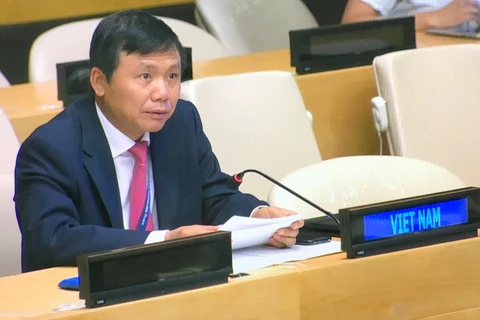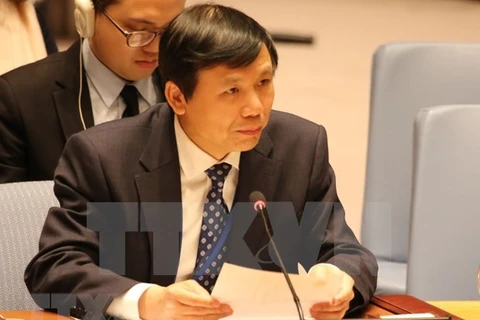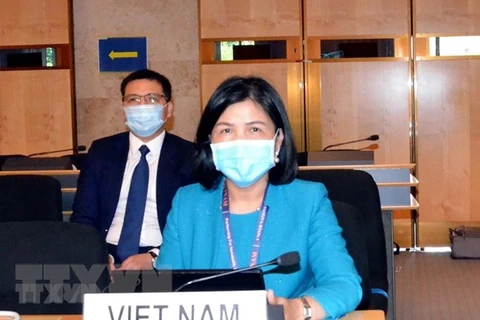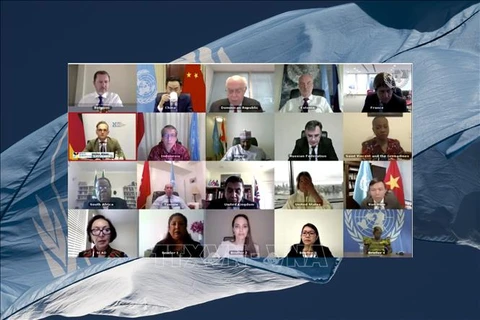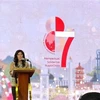Hanoi (VNA) – The UN Security Council held an informal interactive dialogue on July 22 with representatives of the Peacebuilding Commission (PBC) to look into the impact of COVID-19 on conflict-affected countries.
The videoconference, co-organised by Germany, Indonesia, Niger and the UK, was also attended by representatives of Canada as PBC Chair, Colombia and Japan as PBC Vice Chairs, and UN Assistant Secretary-General for Peacebuilding Support Oscar Fernandez-Taranco.
PBC representatives said the COVID-19 pandemic has worsen problems in conflict-affected countries, pointing out that humanitarian crisis and food scarcity have increased, many economies are now on the brink of collapse, elections have been postponed, and inequality has got more serious.
Assistant Secretary-General Oscar Fernandez-Taranco affirmed obvious impact of this pandemic on peace and security, which he said has made the UN’s works, including intermediary and peacebuilding roles, harder but also more necessary.
At the dialogue, member states of the UN Security Council applauded activities that the PBC has carried out in the recent past to cope with the pandemic. They were relatively unanimous in the need for an overall and comprehensive approach, attention to the coordination and cooperation among UN agencies, priority given to vulnerable groups, and improvement of the role of local communities.
They also suggested the PBC flexibly adjust its priorities to adapt to pandemic-induced issues.
Ambassador Dang Dinh Quy, head of Vietnam’s permanent mission to the UN, echoed the views on the pandemic’s impact, the importance of resolving issues as a whole, and the necessity for coordinating to avoid overlapping in the implementation of UN programmes and actions./.
VNA

